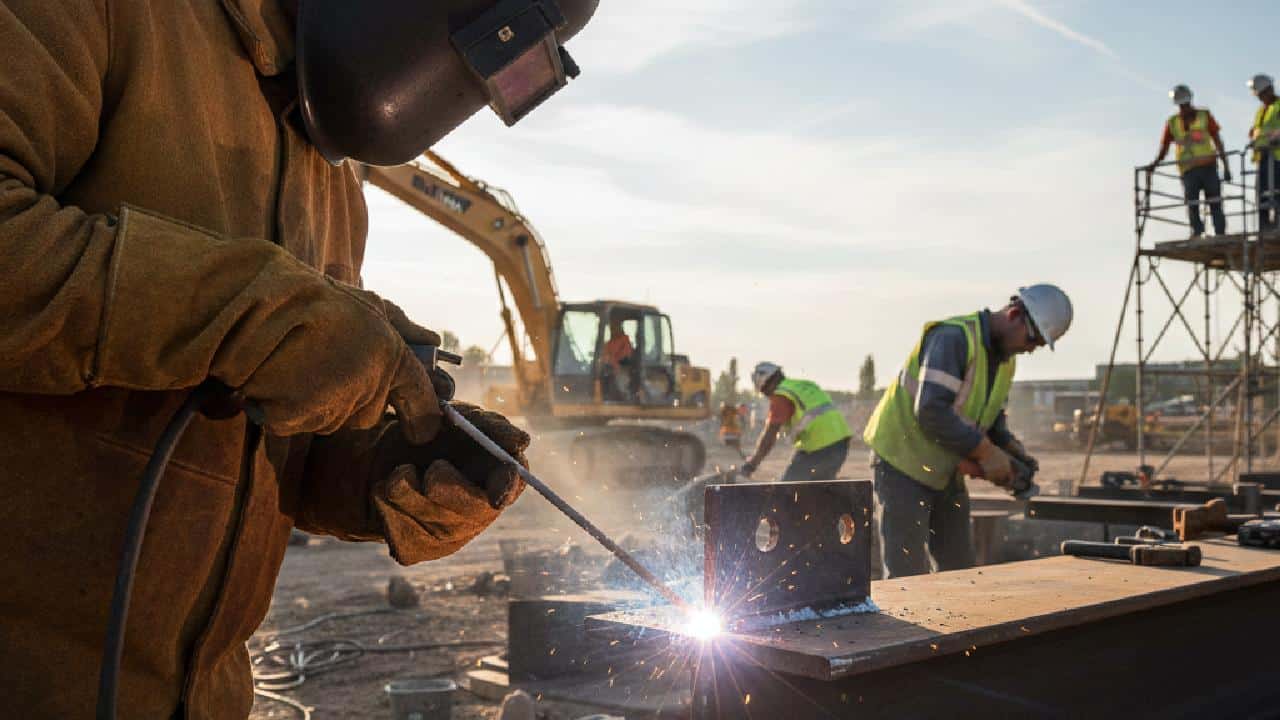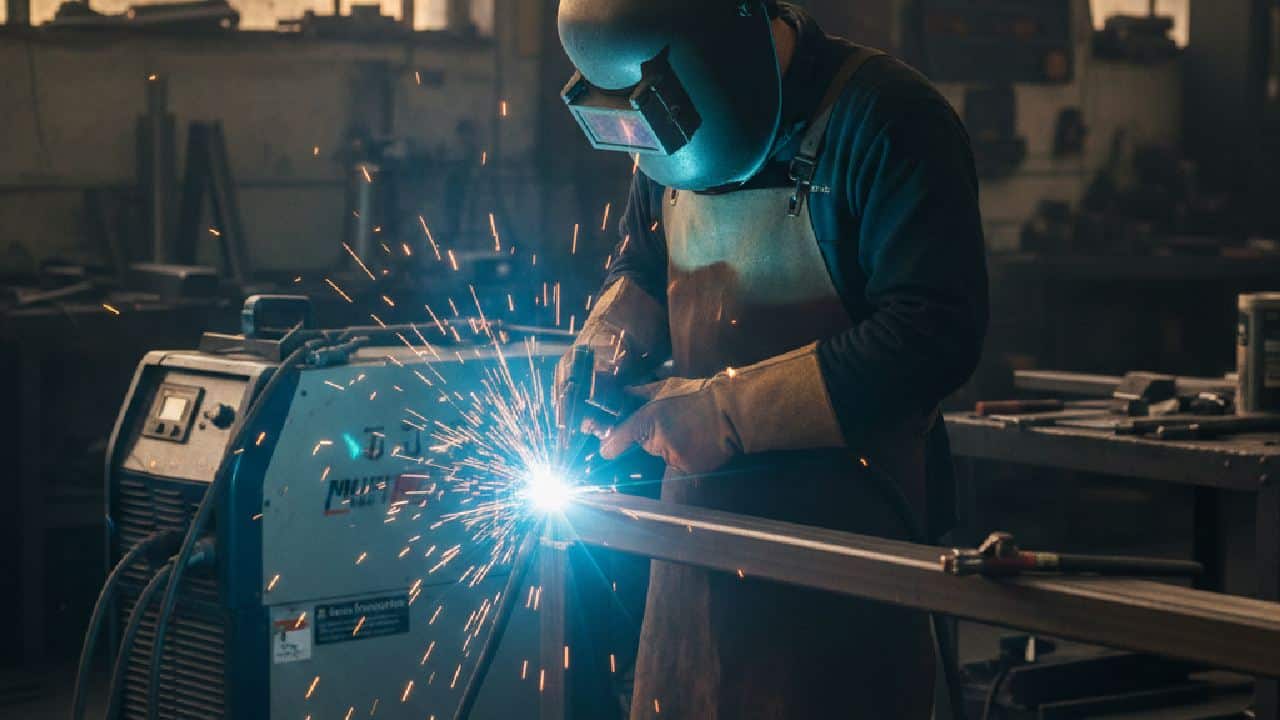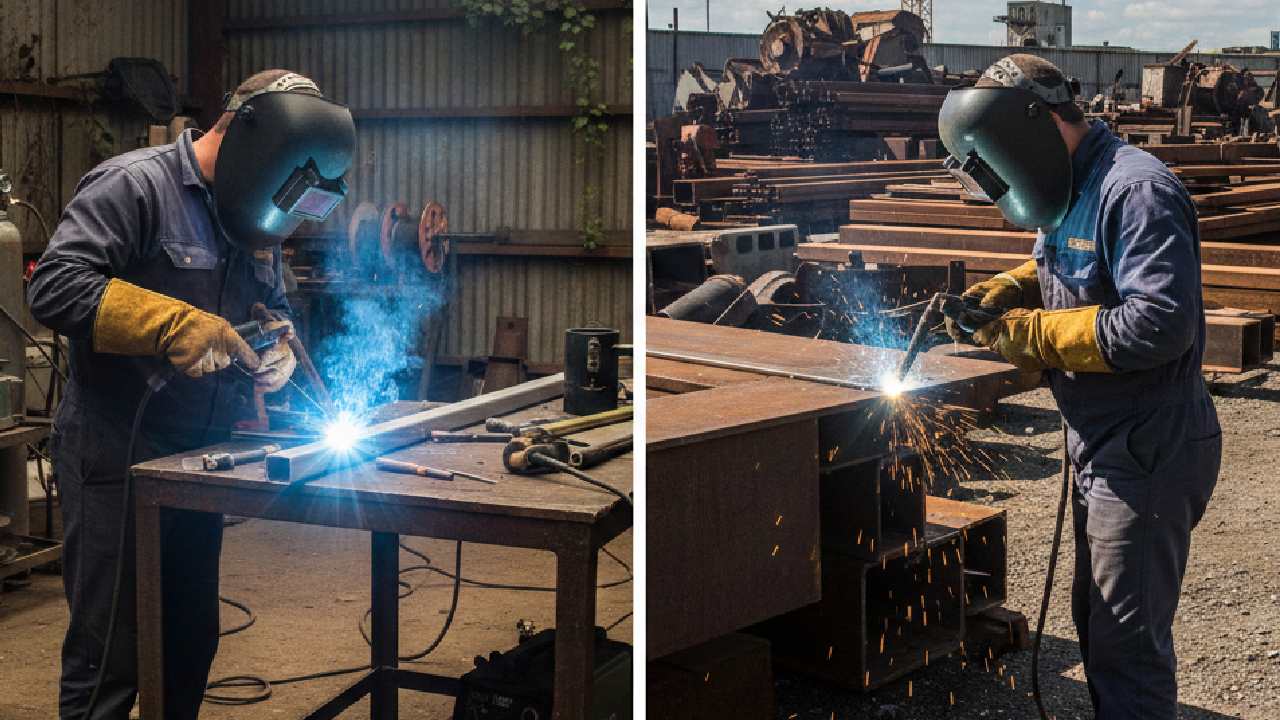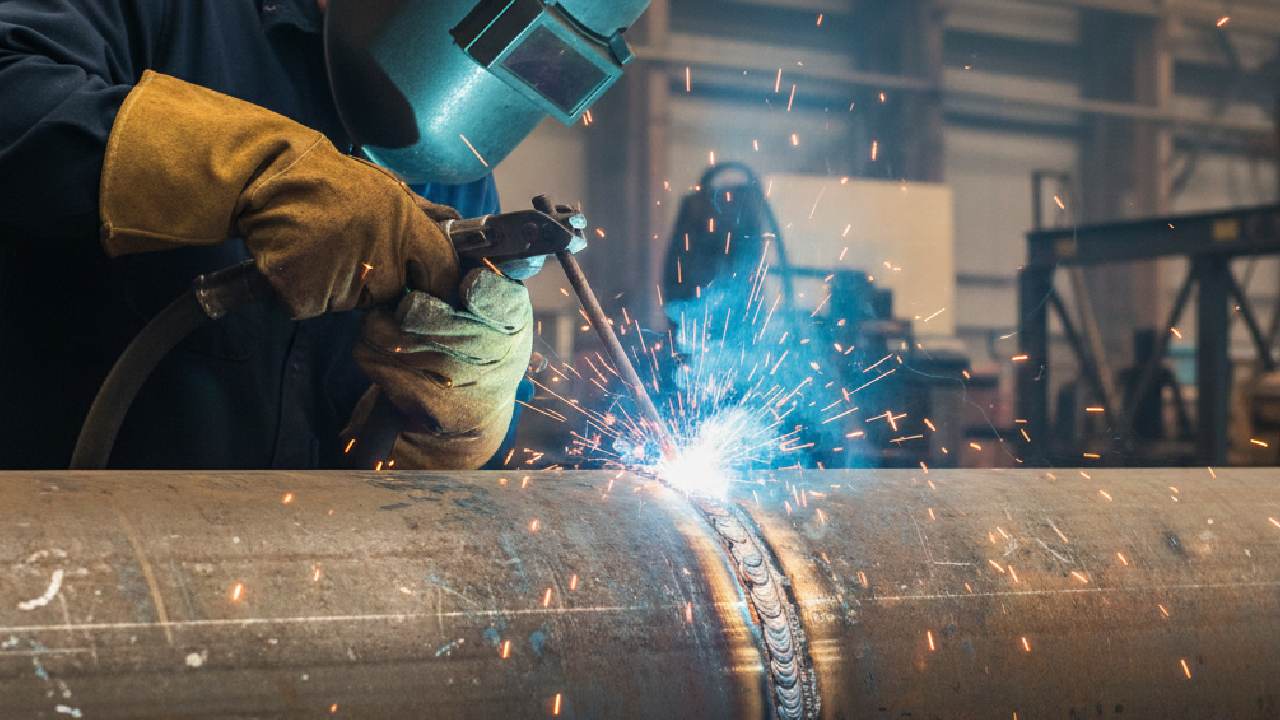Learning about multi-process welders vs. single-process welders provides a clear overview of what to choose for a particular welding task. Single-process welders perform a specific task, so more accuracy and consistency are desirable from these machines. On the other hand, multi-process machines perform multiple techniques – one machine for all!
As their names, the processes and results are not similar. Both of them have significant advantages and particular uses, even some disadvantages as well. This guide will delve into every aspect of the welding machines and help you choose the best for your welding project.
What Is a Single-Process Welding Machine?
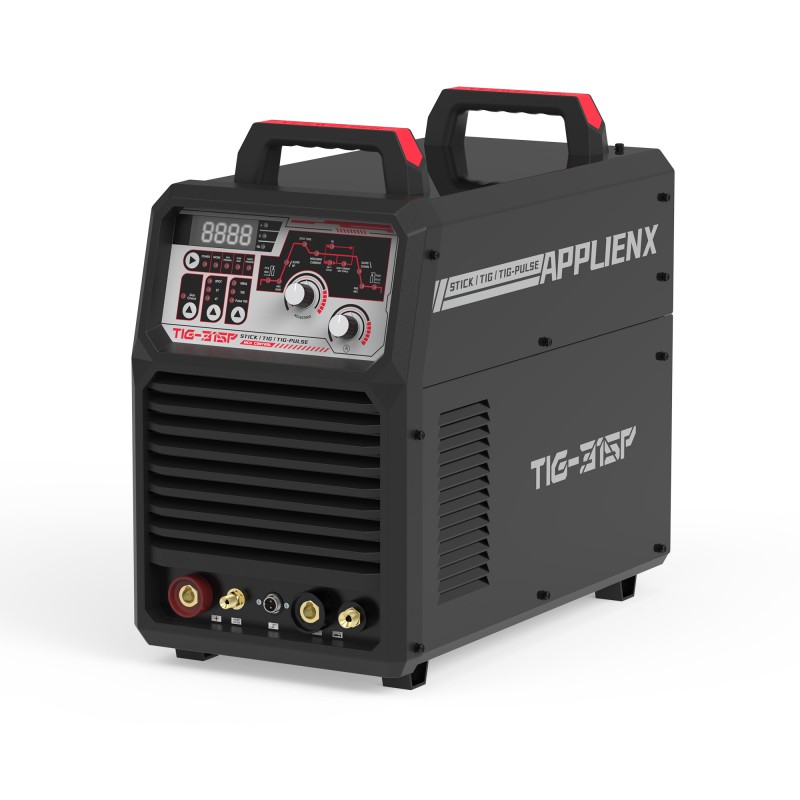
Single-process welding machines are focused on performing a specific type of welding process. Each type has a separate function and application on multipurpose projects. The most common single-process welding machines are – MIG, TIG, Stick, Flux-cored, and Electron beam welding machines.
Since these machines are for dedicated processes, they produce consistent weld quality regardless of type. Compared to multi-process machines, they have fewer machine components that make them up. It eventually makes them much more durable and sturdy to last longer.
Cost efficiency is good when using these machines if you mainly focus on one type of welding procedure. Last but not least, project-specific usage is more common. For example – MIG welding machines are suited to thin materials, whereas stick welding machines provided by a stick welder supplier are suitable for outdoor work.
Functionality is focused on a single procedure and outcome, which makes these machines beginner-friendly. Their simpler designs make them easy to maintain. Therefore, they are good for portability as they are mostly lightweight. Users prefer these types for industries that only need specific welding applications.
Single-process machines also have some drawbacks. They are not sufficient when projects require multiple welding applications simultaneously. And owning each machine for multipurpose work may not be cost-effective.
What Is a Multi-Process Welding Machine?
As the name suggests, multi-process welding machines can perform the functions of all welding machine types. These machines use only one power source and provide ample flexibility to professionals carrying out multiple welding tasks.
Multi-process welding machines can perform two or more welding functions, requiring proper method switching. This switching process takes a few minutes and eventually enables a welder to adopt different welding methods with precision and efficiency.
The use of this machine eventually saves ample space; the welder doesn’t need to have multiple types of welding machines. As for long-term implications, it does help to save money, as one doesn’t need to buy many machines.
Moreover, unless someone is a professional welder, they don’t need a single welding machine for each purpose. For a beginner or a hobbyist, a multi-process welding machine works well and offers value for money.
In a nutshell, these machines can handle multiple welding tasks of different types. They are cost and space-effective for welders. Operators can avoid the hassle of carrying multiple setups as these machines are small and operation-friendly.
As a drawback, they are much heavier than single-process welding machines. Maintenance and repair are time-consuming and not budget-friendly for these heavy units.
When to Choose a Single-Process Welding Machine?
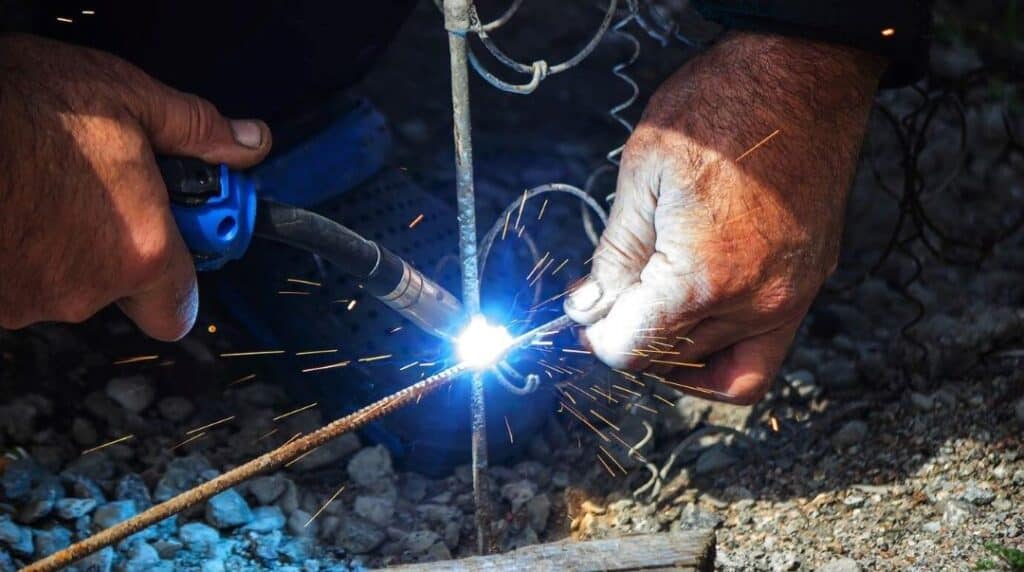
Single-process machines are an excellent option if your job focuses on one type of welding. They can be used only for MIG, TIG, or Stick welding needs where consistency is required.
1. Tough Construction Environment
Stick welding machines are efficient for thick metals like steel and iron. They can withstand harsh environments. So, stick welders work great where you need consistent and heavy welding.
2. Particular Repairs and Manufacturing
MIG welding machines from reliable MIG welding suppliers are a top choice for small vehicle repairs. They work fine on thin parts like car panels or frames. TIG welding machines are commonly used in manufacturing industries for high precision and long-term use. They ensure the best welds on materials like stainless steel, aluminum, and titanium.
3. Home and DIY Projects
Hobbyists and DIY enthusiasts need reliable and budget-friendly options. For that, they often rely on single-process welding machines. These machines fix metal gates, craft furniture, or repair small items at home.
Benefits of Single-Process Welding Machines
1. Single-process welders implement one technique for one task to achieve the highest precision and superior quality.
2. These machines do not have complicated settings or many functions. Therefore, operators can run them easily without any hassle.
3. Single-process machines are portable enough. They are also durable and affordable. They last longer while saving money and time in the long run.
When to Choose a Multi-Process Welding Machine?
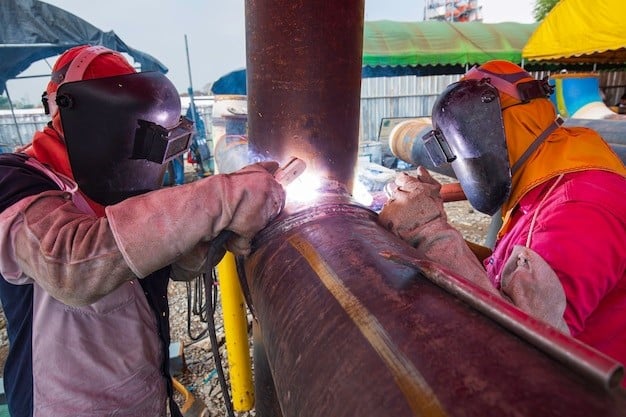
A multi-process welding machine is one device that combines the efficiency of different welding methods. This versatility is helpful for particular projects that require different welding techniques. Some of these projects are:
1. Construction Projects
Multi-process welders are frequently used in construction sectors. They help with projects like structural steel joining, repairing heavy machinery, and fabricating metal frameworks. The machine’s ability ensures both robustness and precision for varied construction needs.
2. Manufacturing and Fabrication
These machines are ideal for assembling sections of different metals or thicknesses in the manufacturing industry. Fabrication can also be done with quality and precision.
3. Automotive Repairs
Automotive professionals prefer multi-process welders because they are adaptable to welding various metals. These welders can work on thin metals and thicker materials simultaneously.
4. Fieldwork and Repairs
Lightweight multi-process welding machines can be essential tools for fieldwork and repairs. They are also used extensively in the gas and oil, agriculture, and mining industries.
Benefits of Multi-Process Machines
1. A multi-process welding machine can handle several metals at the same time including aluminium, steel, or alloys. It can work efficiently and equally on delicate and industrial-grade materials.
2. You can complete many welding tasks using a single machine instead of buying multiple machines. This can save you money, preserve space in your workshop, lessen the project duration, and streamline your workflow.
3. These machines have user-friendly designs, making them handy for both professionals and beginners. A novice can explore a versatile tool for different projects, and an expert can handle diverse welds properly.
Single vs. Multi-Process Welding Machines: Selection Factors
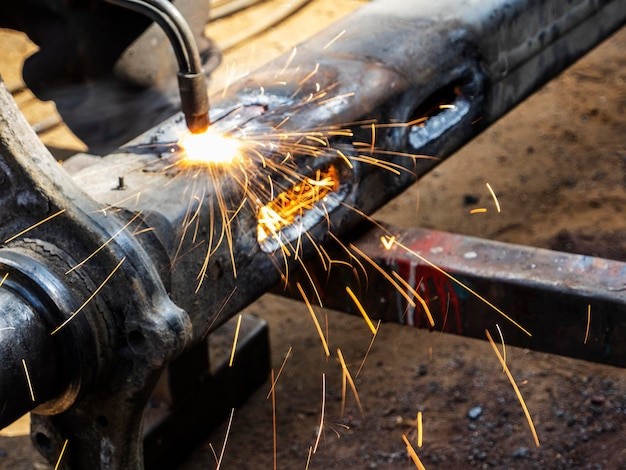
Selecting between single-process and multi-process welders can take time and effort. It’s easier when you consider a few essential factors to find the welding machines that can fulfill your requirements. The following guide will be handy in this case.
- Project Types
- Welding Expertise
- Workspace and Portability
- Budget and ROI
- Maintenance and Durability
- Power Requirements
1. Project Types
Single-process and multi-process welding machines can do almost any welding task, but they are better for some specific types. Single-process welding machines, such as TIG, MIG, or Stick welders, work best where one process is sufficient to complete the job. For example, a TIG welder is ideal for automotive, while stick welding is ideal for structural job.
Multi-process machines are suitable for various projects involving diverse materials and welding methods. These machines are excellent for general fabrication, manufacturing projects, and repair works requiring flexibility.
2. Welding Expertise
Single-process machines are often easier to operate. So, they are better options for individuals who want to become experts in one welding technique. Their simple design and controlling mechanism simplify the learning process.
Multi-process machines are designed basically for experienced welders. Their complex designs require experts who can switch processes depending on the welding requirements.
3. Workspace and Portability
Single-process machines are lighter, ideal for job sites with inadequate space. Due to their various components, multi-process machines are often heavier and larger. They may require extra space for their size, other relevant tools, and accessories.
4. Budget and ROI
Single-process machines are affordable and a good choice for projects with limited budgets. Their features ensure reliable performance and a good return on investment for particular welds.
Multi-process welders require higher initial budgets, but they can save money in the future by avoiding the need to buy other single units. They are cost-effective for projects using different welding techniques concurrently.
5. Maintenance and Durability
Single-process machines are easy to maintain because of their simpler designs, fewer components, and compact sizes. Their repairing costs are low and there are fewer breakdowns.
Maintenance can be complex for multi-process machines. There are several components that run multiple welding techniques from a single unit.
6. Power Requirements
Single-process machines generally consume less power. Therefore, they are more energy-efficient than multi-process machines for dedicated tasks. Multi-process machines require higher power source, additional infrastructure costs, and operational costs.
Closing Words
Comparing multi process welder vs. single process explores that each welder has its advantages and drawbacks to be suitable for a specific application.
Single-process welding machines have a specific welding type that offers reliability and optimized performance. Multi-process welding machines are versatile and convenient; one machine can complete a project requiring different types of welds.
After all, the buying decision comes after considering factors such as welding requirements, schedule, required precision, budget, etc.
YesWelder: Your Professional Welding Machine Partner
YesWelder can be your premier companion for running a successful welding business or completing DIY welding projects. As a wholesale supplier, the company offers innovative and reliable welders and other equipment for distributors of any size.
YesWelder’s products combine unmatched quality, cutting-edge welding technology, and reliability. Wholesale buyers can choose from a wide range of selections at a competitive rate. This leading welding equipment company does its best to elevate your business as a distributor or buyer.
FAQs
1. Is a single-process welding machine more energy-efficient than a multi-process machine?
A single-process machine performs one welding operation, so it doesn’t require extra power and features to handle multiple techniques for various welds simultaneously. This can make a single-process welding machine more energy-efficient than a multi-process machine.
2. Do single-process welding machines last longer?
Single-process machines are designed with fewer components. They perform specific tasks without switching between operation processes. Moreover, they work without exerting extra pressure on components. Overall, due to their simple structures and operation processes, they may have a longer lifespan.
3. Is it tricky to switch between processes on a multi-process machine?
Switching between processes on a multi-process machine requires extra time for setting adjustments.
The wire feed and torch may need to be changed quickly to maintain the normal workflow. However, modern machines come with mechanisms that make switching relatively easier.
4. Do single-process machines require less maintenance?
Single-process machines lack complex components and don’t need to support versatile welding techniques. Therefore, multi-process welding machines require more maintenance due to their structures than single-process machines.
5. Which type of machine works better for outdoor welding?
Due to their built quality and durability, single-process machines can work in harsh conditions. Multi-process machines are versatile, but they may not be efficient enough to work outdoors. Therefore, single-process welders are more suitable for outdoor welding.
